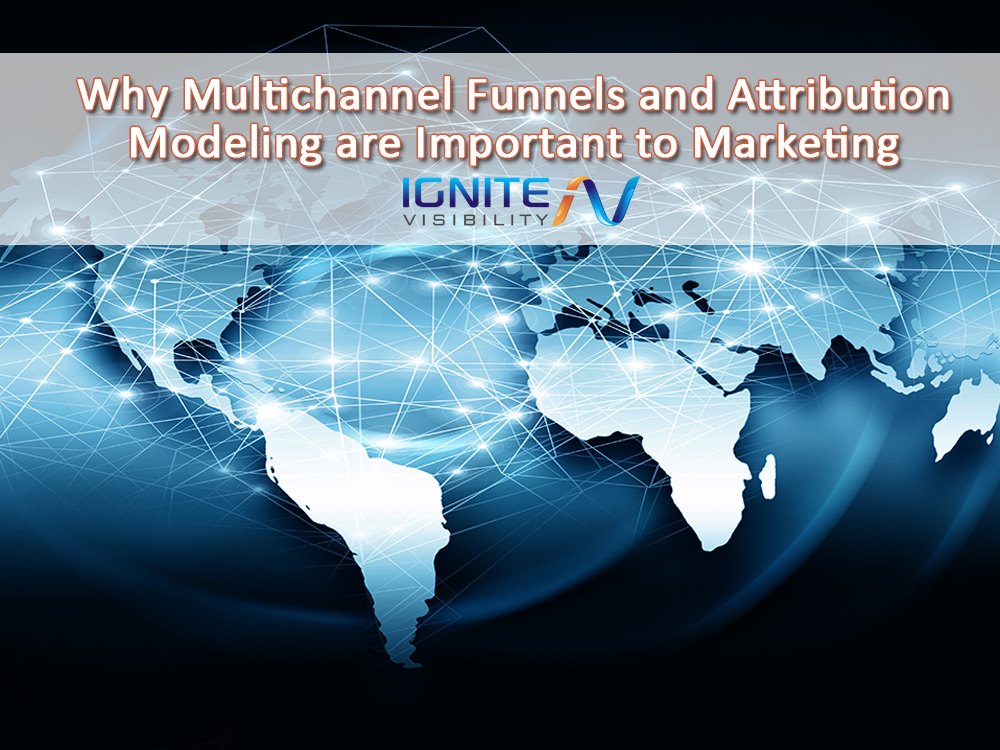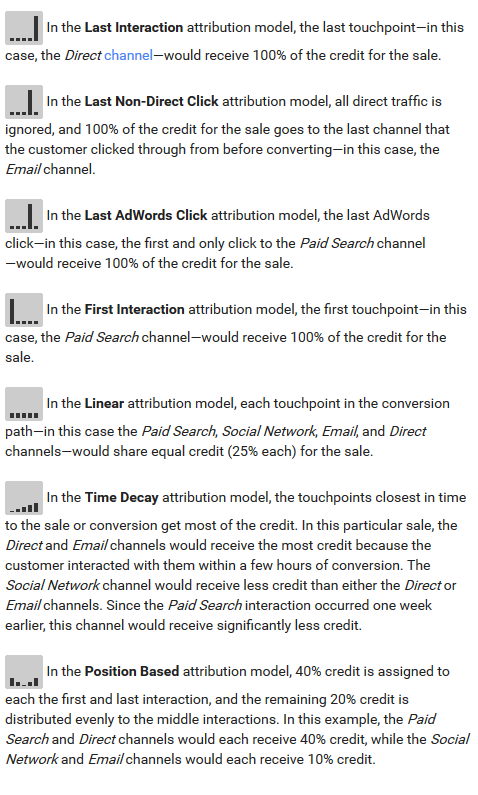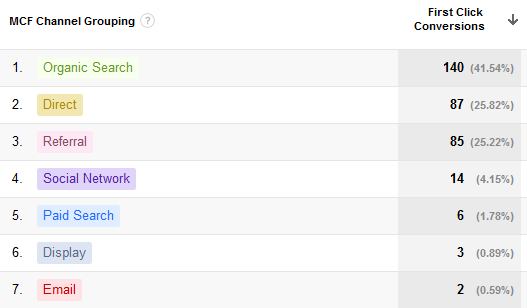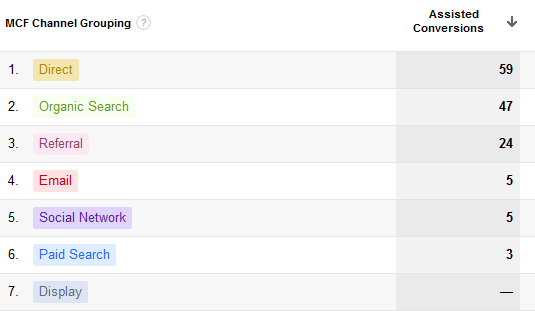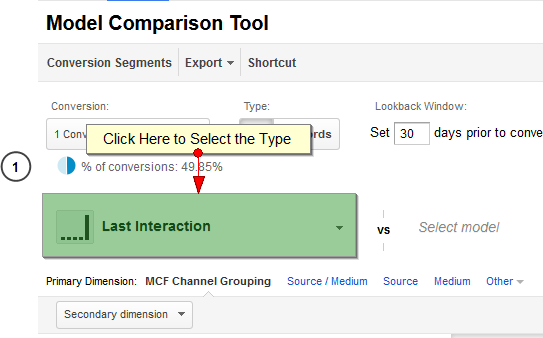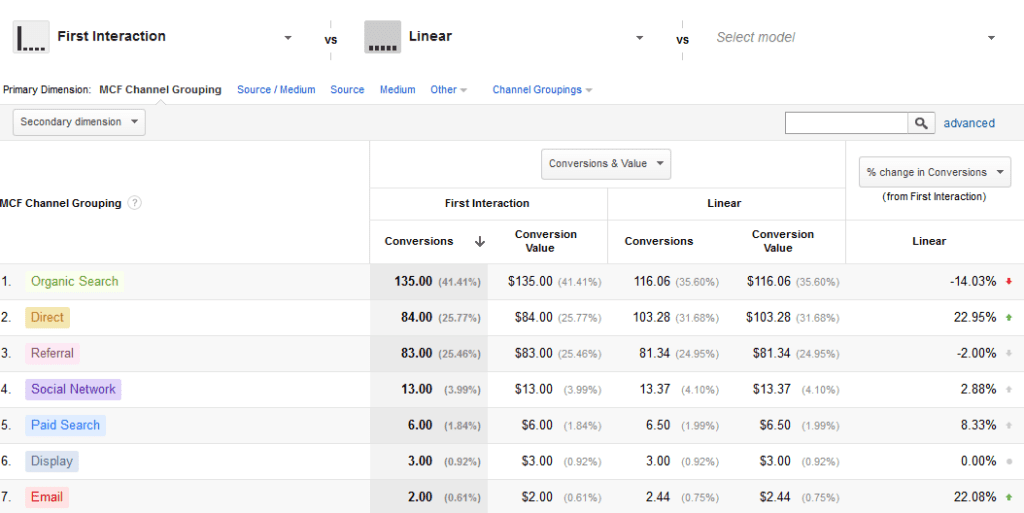Google Analytics is an incredibly powerful tool for marketers. That is why I love teaching about Google Analytics, along with all the other top web analytics tools, at UCSD Extension. However, one thing that often surprises me is the lack of use of the multichannel funnel and attribution modeling reports in marketing. Marketers have been screaming for these abilities for a long time and now that it is here, many are not taking full advantage.
What is the Multichannel Funnel Report?
The multichannel funnel report shows what role each marketing channel showed in the conversion process. This allows seeing what initiated the conversion, what was in the middle and what resulting in the last click to conversion. For example, consider a user who finds your site through organic search then comes back via direct and finally converts via a PPC ad. In a normal Google Analytics report, the conversion report is based on last click so that conversion would go to PPC. But that doesn’t really seem 100% fair right? This report address this by showing all factors involved in the conversion.
What is Attribution Modeling?
Attribution modeling takes multichannel funnels a step further, by allowing you to assign a specific value based on the position in the conversion process. There are a variety of attribution models for marketing professionals to choose from, however, you can also create a custom model. You can see the main types below.
Why Marketing Professionals Should be Using These Reports
Many marketing channels do not get the credit they deserve, or the credit they get is completely skew because they are reaping the benefit of a constant stream of conversion intiation created by another marketing channel. For example, consider I wrote a blog post on “The Ultimate Guide to SEO for Business.” For this exercise, say that post ranks #1 for business SEO and the post gets 5,000 visitors a month. Of that 5,000 visitors a month, .5% come back to the website later as direct traffic and then covert. This results in 25 new leads per month.
If we look at this in the normal Google Analytics model, it looks like this.
Direct Conversions > 25 Goals Completed
If we look at this in the multichannel funnel top conversion path model, it looks like this.
Organic Search > Direct = 25 Goals Completed
Now, we can also look at the multichannel funnel report and see which channels of traffic initiated the first click in the conversion process.
We can also see which channels assisted in the most conversions.
So to further the example, those 25 conversions would have been attributed to direct as last click. But if we look at these reports, they would have been attributed to organic as first click and with having an assist.
Attribution Modeling
As mentioned, inside the attribution modeling tool there are a variety of models to choose from. You can do that by clicking on the drop down in the tool.
For the purposed of this exercise, I will select First Interaction vs Linear.
Here we see that organic search has the most first interactions and linear interactions, however, it has 14% less linear interactions.
Now if we look at first interaction vs last interaction, we can see organic search has 17% less last interaction conversions. Showing it usually initiates the lead, but it is often closed by direct or paid search. Direct has 36% more last interaction conversions and paid search has 16.67%.
Why Multichannel Funnels and Attribution Modeling are Important to Marketing
I hope this make its clear how exciting these two reports really are to marketing reporting. By using these reports you can make smarter marketing decisions.
